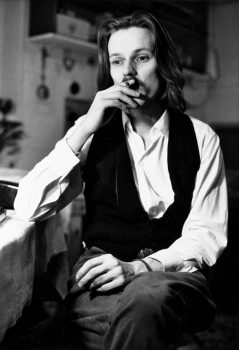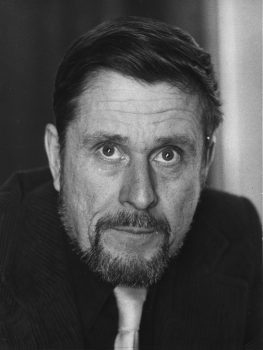Archive for March, 1981
Poems
Issue 1/1981 | Archives online, Fiction, poetry
Introduction by Pekka Tarkka
Wind’s whistling through Europe’s windows
In the moonlight
when the mirrors are screeching
cold light, a silvery curse
the newsreel breaks loose, gallops
the window pane into blackness
Wind’s whistling through
Europe’s windows, the sky’s
full of flying Pickwick Club papers
Just a moment
International terror’s
switchboard diagram: the transistors
are hijacking the plane More…
The Last War Hero
Issue 1/1981 | Archives online, Fiction, Prose
An extract from 30-åriga kriget (‘The Thirty Years’ War’). Introduction by Markku Envall
First he heard the noise.
It was an unfamiliar noise and therefore doubly dangerous. Viktor grabbed his machine-pistol. It was a sputtering noise, like that of a cracked machine-gun. But it came from above. And what came from above could be dangerous, Viktor knew.
Then he saw the helicopter, flying just above the tree-tops. He had never seen a helicopter before. Nor had he ever seen the circular markings carried by the aircraft as a sign of the nationality. More and more nations were getting involved, he had had a visit from an American, for all he knew this might be a plane from Australia. The Russians must be in a tight corner if they had to keep sending their allies into the firing line.
He bitterly regretted having let the American sergeant get away.
Now they were after him in real earnest. It must have been the Yankee who had sent them.
Viktor directed a long burst of fire at the plane, which was now hovering almost motionless in the air, like a bee over a flower. The bullets shattered the roboter blades, splinters flew in all directions, and the helicopter dived at a steep angle and plunged into the lake. Viktor leapt to his feet and shouted “Hurrah!” and proceeded to execute a gleeful victory dance. He had shot down an enemy aircraft. More…


